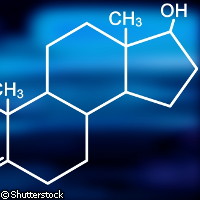What are the symptoms of male menopause?
EU-funded scientists have identified the symptoms behind late-onset hypogonadism or 'male menopause', a rare condition that affects 2% of men. Nine symptoms were linked for the first time to low testosterone production, the key factor in male menopause. The seven-year study was part of the EMAS ('European male ageing study') project, which received over EUR 6 million under the 'Quality of Life and Management of Living Resources' Thematic programme of the EU's Fifth Framework Programme (FP5). The findings, which are published in the New England Journal of Medicine, are expected to better gauge the need for male testosterone therapy. For the study, scientists from Belgium, Estonia, Finland, Hungary, Italy, Poland, Spain, Sweden and the UK interviewed a total of 3,369 men aged between 40 and 79 years from all 8 countries. They asked specific questions about their sexual, physical and psychological health, and measured their testosterone levels. Of the 32 candidate symptoms posed by the team, only 9 were in fact associated with low levels of testosterone. The scientists identified three sexual symptoms as being the most important: less incidence of morning erection; less incidence of sexual thoughts; and erectile dysfunction. Although a patient may show signs of other non-sexual symptoms, a diagnosis of male menopause requires a low testosterone level and the presence of all three sexual symptoms. These findings are expected to help physicians better assess the condition and the need for treatment, particularly male testosterone therapy. The lead author of the study, Professor Fred Wu from the University of Manchester in the UK, said that the findings show that testosterone treatment may only be useful in a relatively small number of cases where androgen deficiency is suspected, 'since many candidate symptoms of classic hypogonadism were not associated with decreased testosterone levels in older men'. The scientists also identified three physical symptoms: inability to engage in vigorous activity (e.g. run or lift heavy objects); inability to walk more than one kilometre; and inability to bend, kneel or stoop. The remaining three symptoms were identified as psychological: energy loss; sadness; and fatigue. But the link to low testosterone levels for these six symptoms was found to be weaker than the sexual symptoms. Other symptoms commonly thought to be linked to late-onset hypogonadism, such as sleeping pattern changes, bad concentration, and feelings of low self-worth, were discounted by the team as not being testosterone related. The team also identified the testosterone thresholds below which specific symptoms become increasingly common. But the scientists warn that differences in testosterone levels between symptomatic and non-symptomatic men were marginal. 'The long list of non-specific symptoms that have a potential association with testosterone deficiency makes it difficult to establish a clear diagnosis of late-onset hypogonadism. This situation is further complicated when you consider that even the most specific sexual symptoms of androgen deficiency were relatively common among men with normal testosterone levels,' explained Professor Wu. He added that in order to increase the probability of correctly diagnosing late-onset hypogonadism it was important to specify the presence of all three sexual symptoms of the nine testosterone-related symptoms that were identified in the study, together with low testosterone. 'The application of these new criteria should guard against the excessive diagnosis of hypogonadism and curb the unwise use of testosterone therapy in older men,' concluded Professor Wu. Male menopause is often linked to obesity and poor health. Since 1999, the prescription of male testosterone therapy has increased fourfold in the US (a statistic that is not replicated anywhere else in the world).
Countries
Belgium, Estonia, Spain, Finland, Hungary, Italy, Poland, Sweden, United Kingdom



